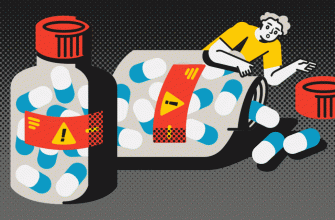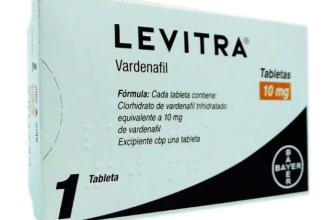Need fast pain relief? Voltaren offers several formulations to target your specific needs. Choose from gels, creams, or tablets, depending on the location and severity of your pain. This allows for precise application and tailored treatment.
Diclofenac, the active ingredient in Voltaren, works by reducing inflammation, thus alleviating pain. This makes it a suitable option for various conditions like osteoarthritis, rheumatoid arthritis, and muscle aches. Remember to always consult a doctor before starting any new medication.
Important Note: While Voltaren provides effective relief, it’s crucial to follow the recommended dosage precisely. Over-the-counter versions usually have lower concentrations than prescription strengths. Pay close attention to the packaging instructions and seek medical advice if you have any questions or experience adverse reactions. Side effects can include stomach upset; use caution if you have pre-existing digestive issues.
Specific product choices, such as Voltaren Emulgel or Voltaren tablets, offer different application methods and absorption rates. Consider your lifestyle and preferences when selecting the best option for your specific pain management strategy. This will contribute significantly to successful treatment and faster recovery.
- Dosage and Administration: Following Prescribed Instructions
- Oral Dosage Forms
- Topical Dosage Forms
- Missed Dose
- Storage
- Adverse Reactions
- Drug Interactions: Knowing What to Avoid
- Nonsteroidal Anti-Inflammatory Drugs (NSAIDs)
- Blood Thinners
- Lithium
- ACE Inhibitors and Angiotensin II Receptor Blockers (ARBs)
- Diuretics
- Cyclosporine and Tacrolimus
- Methotrexate
- Corticosteroids
- Alcohol
- Other Considerations
- When to Consult a Doctor: Seeking Professional Advice
- Red Flags Requiring Immediate Medical Attention
- Precautions and Warnings: Understanding Potential Risks
- Gastrointestinal Issues
- Cardiovascular and Renal Effects
- Skin Reactions
- Other Considerations
Dosage and Administration: Following Prescribed Instructions
Always adhere strictly to your doctor’s prescription. Never adjust your dosage without consulting them. Improper use can lead to unwanted side effects.
Oral Dosage Forms
Swallow Voltaren tablets whole with a full glass of water. Avoid crushing or chewing them. For liquid forms, carefully measure the correct dose using a measuring spoon or syringe provided, and follow the instructions on the label. Take with food to minimize potential stomach upset. The frequency of dosage depends on your specific condition and prescription. Your physician will tailor the schedule to meet your individual needs. Maintain regular intervals for consistent blood levels of the medication.
Topical Dosage Forms
Apply Voltaren gel or cream thinly to the affected area. Gently rub it into the skin until absorbed. Avoid contact with eyes and mucous membranes. Wash your hands thoroughly after application unless treating your hands. The prescribed amount and frequency are crucial to achieving therapeutic benefits. Overuse won’t necessarily provide faster relief, and may lead to increased risk of irritation. The frequency will depend on your prescription.
Missed Dose
If you miss a dose, take it as soon as you remember, unless it’s almost time for your next dose. Never double up on doses. Contact your physician for guidance if you regularly miss doses.
Storage
Store Voltaren according to the label instructions. Keep it out of reach of children and pets. Dispose of expired medication appropriately.
Adverse Reactions
Report any unusual side effects, such as stomach pain, allergic reactions or skin irritation, to your doctor immediately. They can assess the situation and adjust your treatment as needed. Timely reporting helps ensure your safety and the efficacy of the treatment.
Drug Interactions: Knowing What to Avoid
Always inform your doctor or pharmacist about all medications you are taking, including over-the-counter drugs, herbal remedies, and supplements, before starting Voltaren.
Nonsteroidal Anti-Inflammatory Drugs (NSAIDs)
Combining Voltaren (an NSAID) with other NSAIDs, such as ibuprofen or naproxen, increases the risk of stomach ulcers, bleeding, and kidney problems. Avoid concurrent use.
Blood Thinners
- Voltaren can increase the risk of bleeding when taken with anticoagulants like warfarin or heparin. Your doctor needs to carefully monitor you if you must use both.
- Aspirin, another blood thinner, increases this risk as well.
Lithium
Voltaren may decrease the effectiveness of lithium, a medication used to treat bipolar disorder. Your doctor may need to adjust your lithium dosage.
ACE Inhibitors and Angiotensin II Receptor Blockers (ARBs)
These medications, commonly used to treat high blood pressure and heart failure, may have reduced effectiveness or increased risk of kidney problems when taken with Voltaren. Close monitoring is necessary.
Diuretics
Using Voltaren with diuretics (water pills) might increase the risk of kidney problems. Proper hydration is crucial in this case.
Cyclosporine and Tacrolimus
These immunosuppressants, often used after organ transplants, can have their toxic effects on the kidneys worsened by Voltaren. Close monitoring of kidney function is mandatory.
Methotrexate
Combining Voltaren with methotrexate (used in certain cancers and autoimmune diseases) increases the risk of methotrexate toxicity. Careful monitoring is absolutely necessary.
Corticosteroids
- Concurrent use of Voltaren and corticosteroids (like prednisone) increases the risk of stomach ulcers and bleeding.
- Increased risk of other side effects is also possible.
Alcohol
Alcohol consumption increases the risk of stomach irritation and bleeding when using Voltaren. Limit or avoid alcohol while taking this medication.
Other Considerations
This list isn’t exhaustive. Always discuss potential interactions with your healthcare provider before combining Voltaren with any other medication. They can provide personalized guidance based on your specific health conditions and medications.
When to Consult a Doctor: Seeking Professional Advice
Experience worsening pain despite using Voltaren for the recommended duration. Don’t hesitate to contact your doctor if your pain intensifies, spreads, or changes character significantly. This might indicate a more serious underlying condition requiring different treatment.
Red Flags Requiring Immediate Medical Attention
Seek immediate medical help if you experience any of the following: severe swelling or inflammation, signs of infection (such as increased warmth, redness, or pus), chest pain, shortness of breath, severe abdominal pain, or allergic reactions (like rash, hives, or difficulty breathing). These symptoms require prompt assessment and intervention by a healthcare professional.
If Voltaren doesn’t provide sufficient pain relief after a week of regular use, schedule a doctor’s appointment. They can assess your condition, determine the underlying cause of your pain, and recommend alternative treatment options if needed. This might include stronger medication, physical therapy, or other interventions.
Remember to always follow the instructions on the Voltaren packaging and discuss any concerns with your pharmacist or physician before starting or changing your treatment plan. Your health is paramount.
Precautions and Warnings: Understanding Potential Risks
Avoid Voltaren if you’re allergic to diclofenac or related medications. Inform your doctor about all your current medications, including herbal supplements, as interactions can occur. Pregnancy and breastfeeding require careful consideration; consult your doctor before use.
Gastrointestinal Issues
Voltaren can cause stomach upset, ulcers, or bleeding. If you experience severe abdominal pain, vomiting blood, or black stools, seek immediate medical attention. Avoid alcohol while using Voltaren to minimize these risks. Your doctor may suggest a gastroprotective agent to protect your stomach.
Cardiovascular and Renal Effects
Voltaren may increase your risk of heart attack, stroke, and kidney problems, especially with prolonged use or high doses. Individuals with pre-existing heart or kidney disease should use Voltaren cautiously and under close medical supervision. Regular monitoring of blood pressure and kidney function may be necessary.
Skin Reactions
Rarely, Voltaren can cause serious skin reactions. Stop using Voltaren and contact your doctor immediately if you develop a rash, hives, blisters, or peeling skin.
Other Considerations
Voltaren can affect liver function. Your doctor might order blood tests to monitor your liver health during treatment. Additionally, inform your doctor about any bleeding disorders, as Voltaren can increase bleeding risk. Finally, elderly patients may be more susceptible to side effects and require lower doses.





